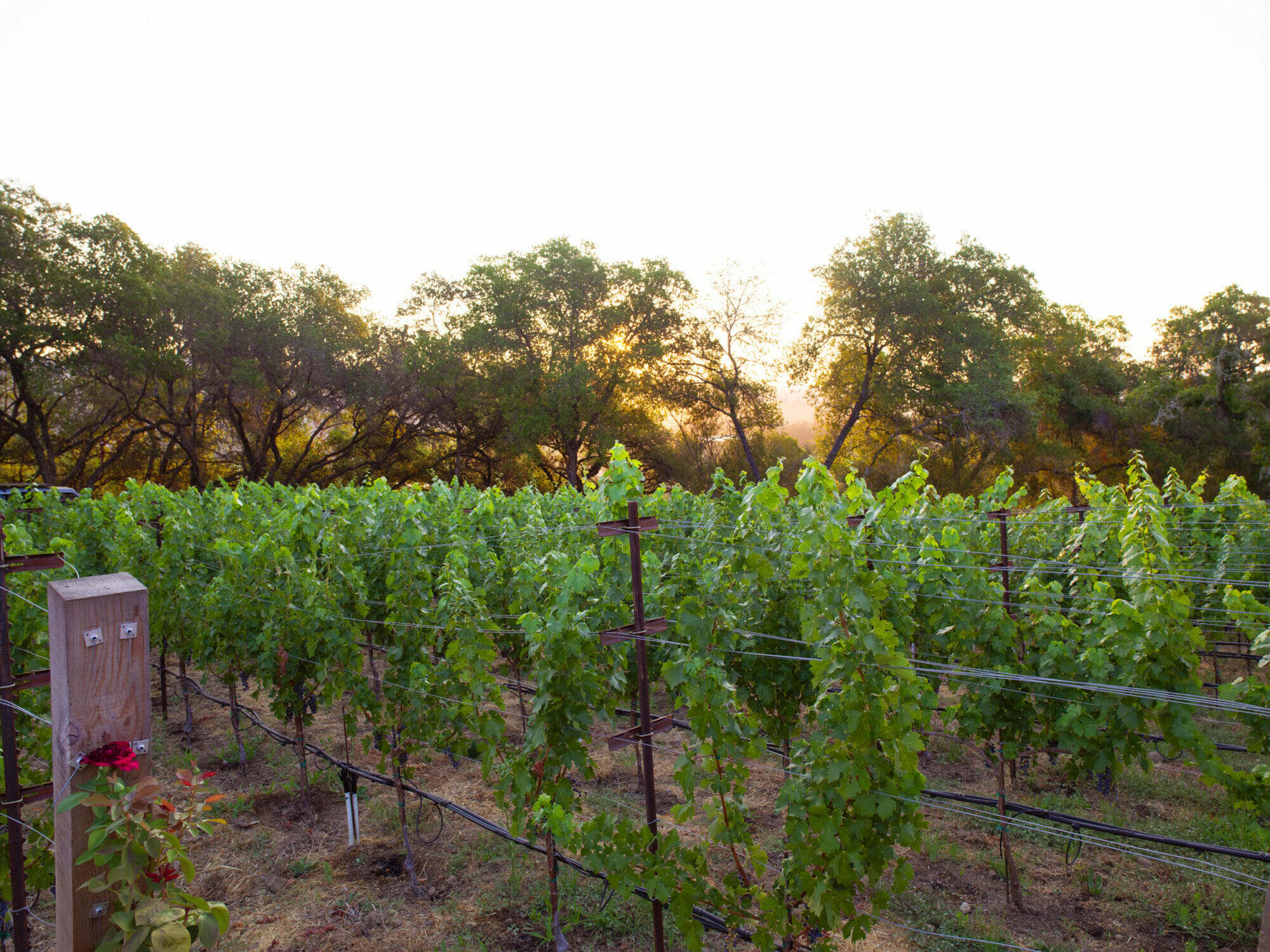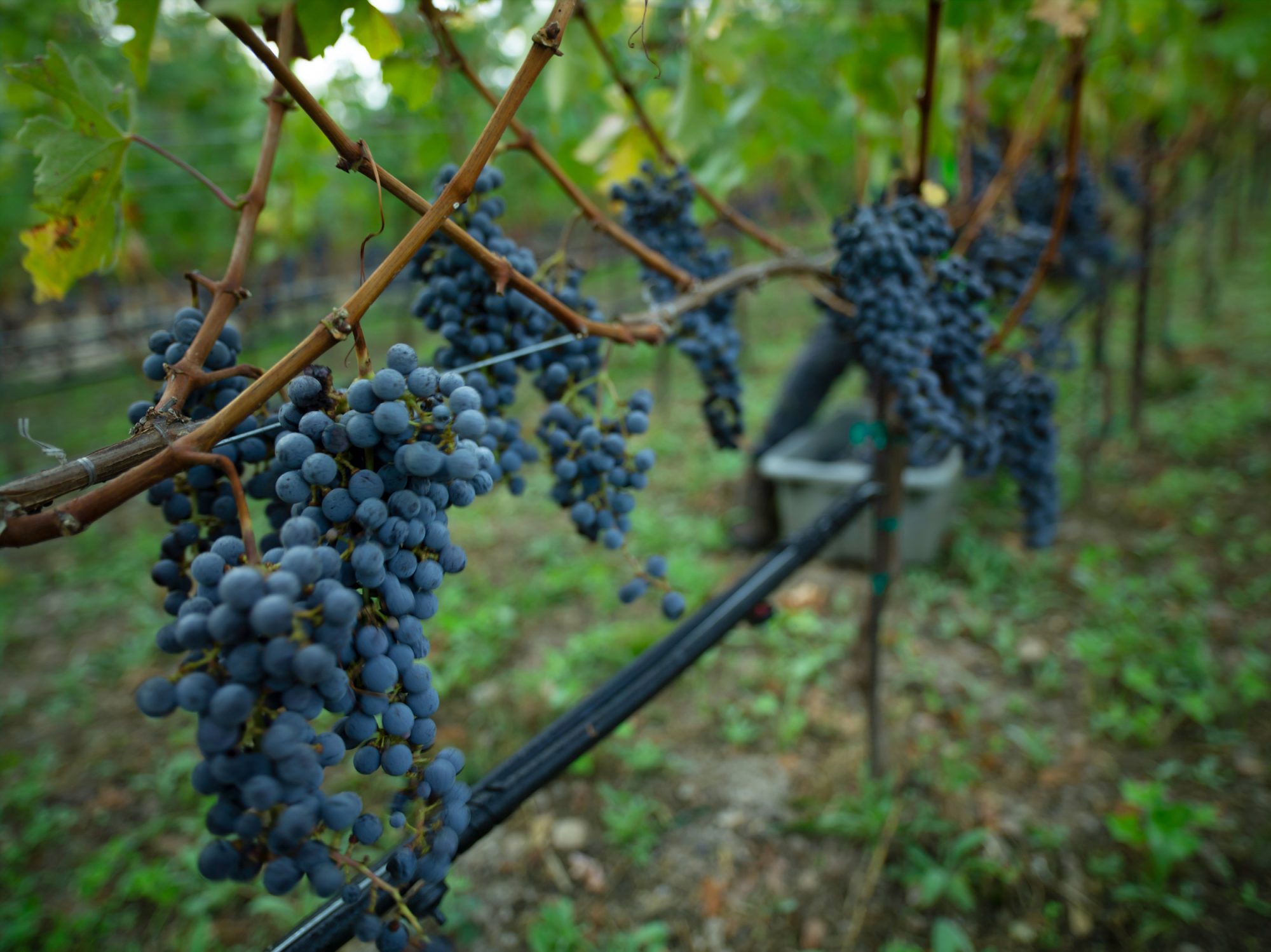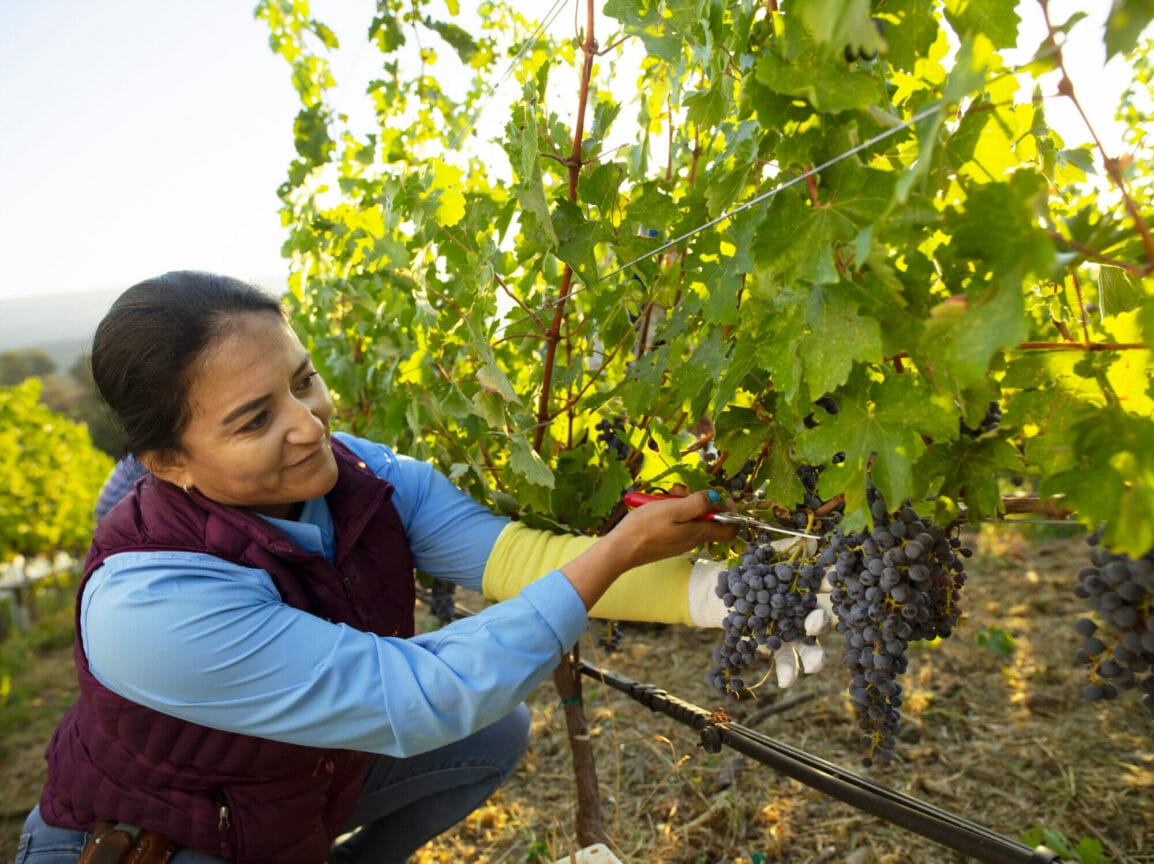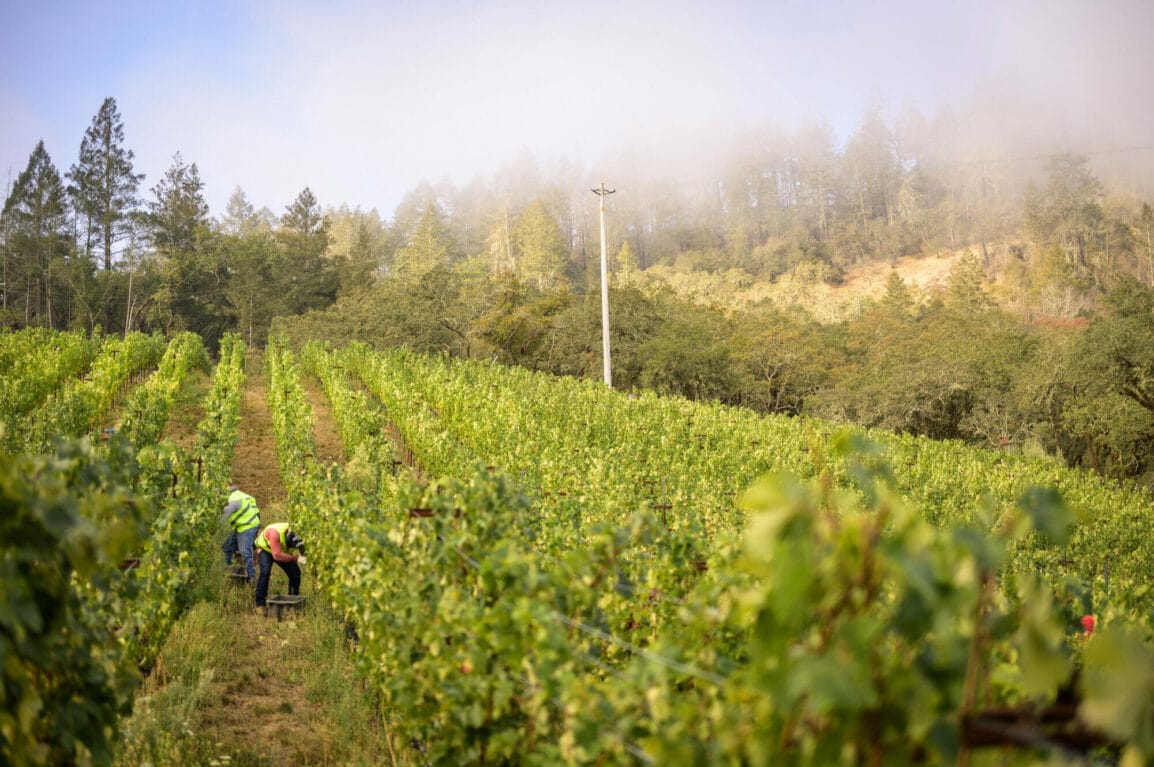
Hidden Key Vineyard
Hidden Key Vineyard
Our 2.5-acre estate vineyard is located just north of St. Helena, on steep wooded slopes overlooking the Napa Valley. Facing east-northeast, the three vineyard blocks range from 500 to 800 feet in elevation, becoming more integrated with the forest as they stair-step up the hill. “That east-northeast exposure is going to produce a wine with depth and nuance,” says Arborum winemaker Andy Erickson. “Protected from the afternoon sun, the fruit will retain a lot of aromatic complexity, structure, and natural acidity.”
With an average slope of 26%, each vineyard block is unique in aspect, slope, temperature, drainage, and geology, all expressing different nuances of the estate’s distinctive terroir. Soils range from the Forward Series to Hambright Series to sand, silt, and clay. This breadth of character in such a compact footprint enables us to select the best fruit for our estate Cabernet Sauvignon and to create a remarkable Proprietary Red blend as well.

The names we chose for each vineyard block—1871, Hannah, and Hidden Key—mark chapters in our property’s history. Our fourth block, called Prohibition, is reserved for the Mission olive grove which we restored with trees originally planted by the Weinberger family in the late 19th century.
Oscar Renteria and his vineyard management team work with us in maintaining a natural balance between the cultivated and the wild. As Oscar likes to say, Arborum’s varying topography and soils create “three or four different worlds” all in close proximity to one another. We think that sums it up pretty neatly.
There’s a feeling you get when walking a piece of ground…that you can create a wine that reflects that special place.
Andy Erickson Winemaker
Tended by Hand Organically
Planted in 2019, our Cabernet Sauvignon clonal choices were made block by block, with both wine quality and sustainability in mind. The vineyard was certified organic in 2021 and is tended by hand, vine by vine, using a precision farming approach that enables us to respond to the specific needs of each zone and individual plant. Oscar’s COO Rob Whyte explains that “vines are breathing plants. They wake up, they take naps, they sleep. The more we understand that natural rhythm of each block, the better.”


Between the rows, we seed a mix of pollinator-friendly plants, mowed by hand each spring and summer. A natural spring flows for irrigation, and the surrounding forest harbors owls, hawks, and beneficial insects that help keep vineyard pests at bay.
For us, farming in balance with nature is hugely important. “I think vines bring themselves into balance over time when we farm organically and holistically,” says Andy. “At some point they reach an equilibrium and become one with the place.” After all, we live in the vines.